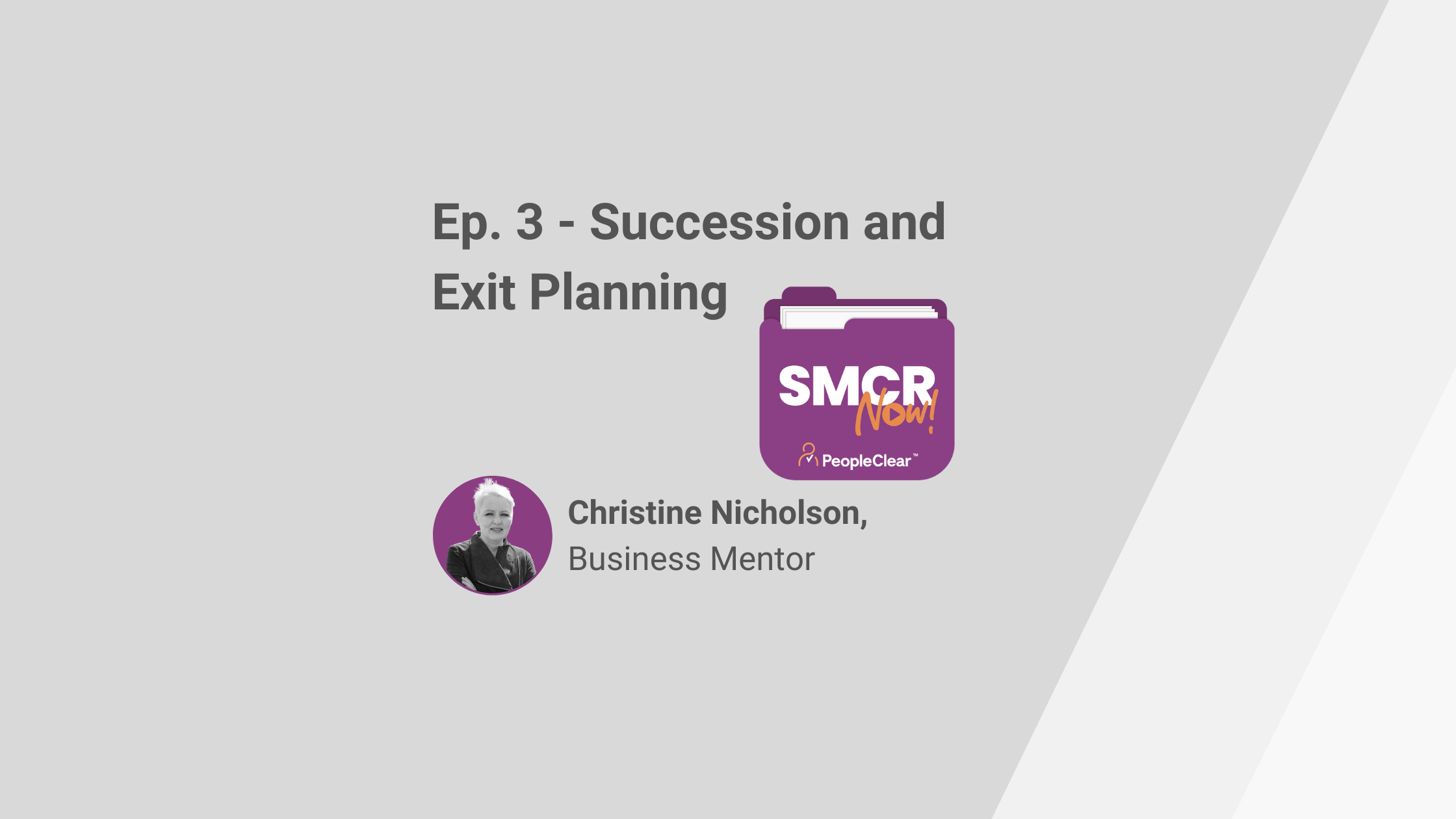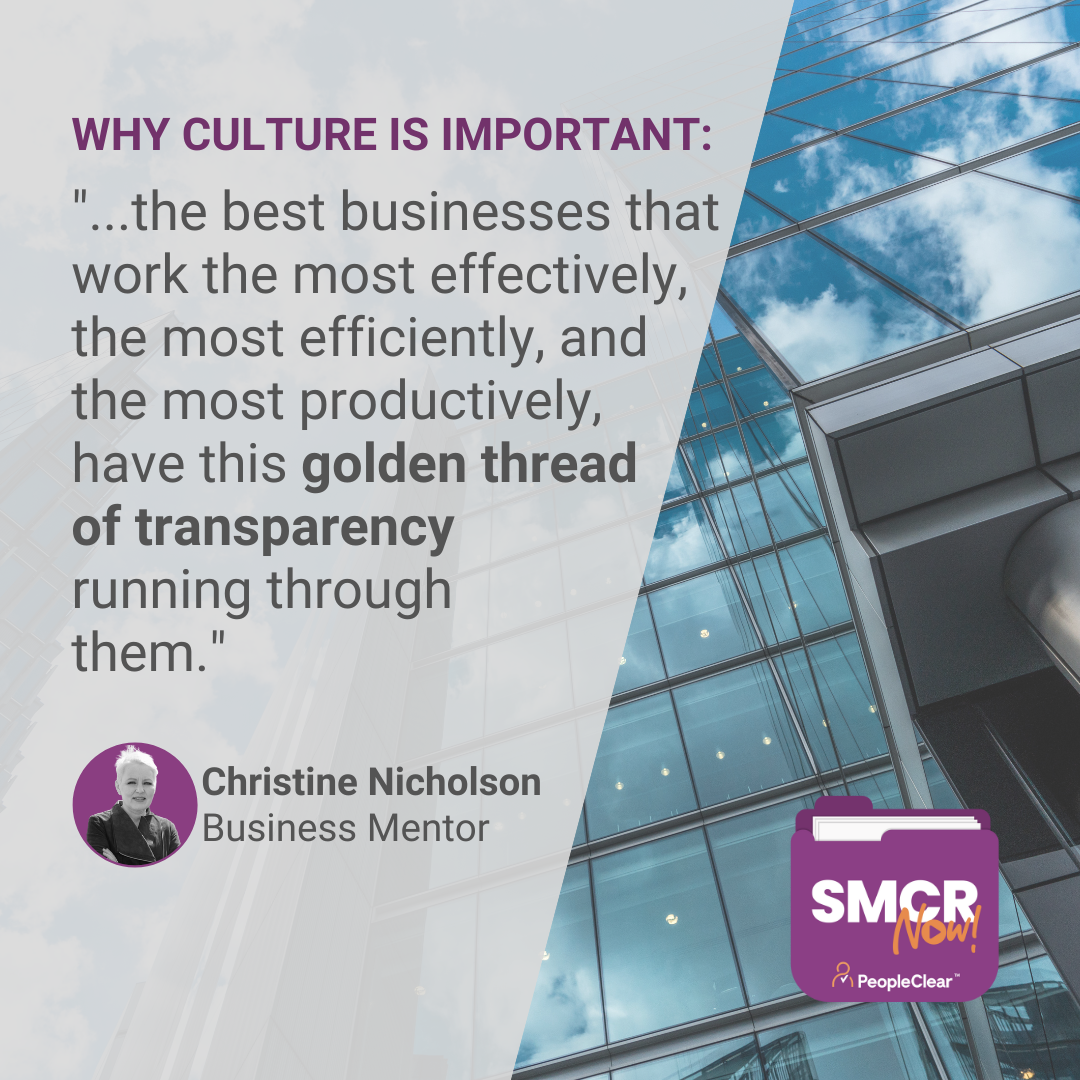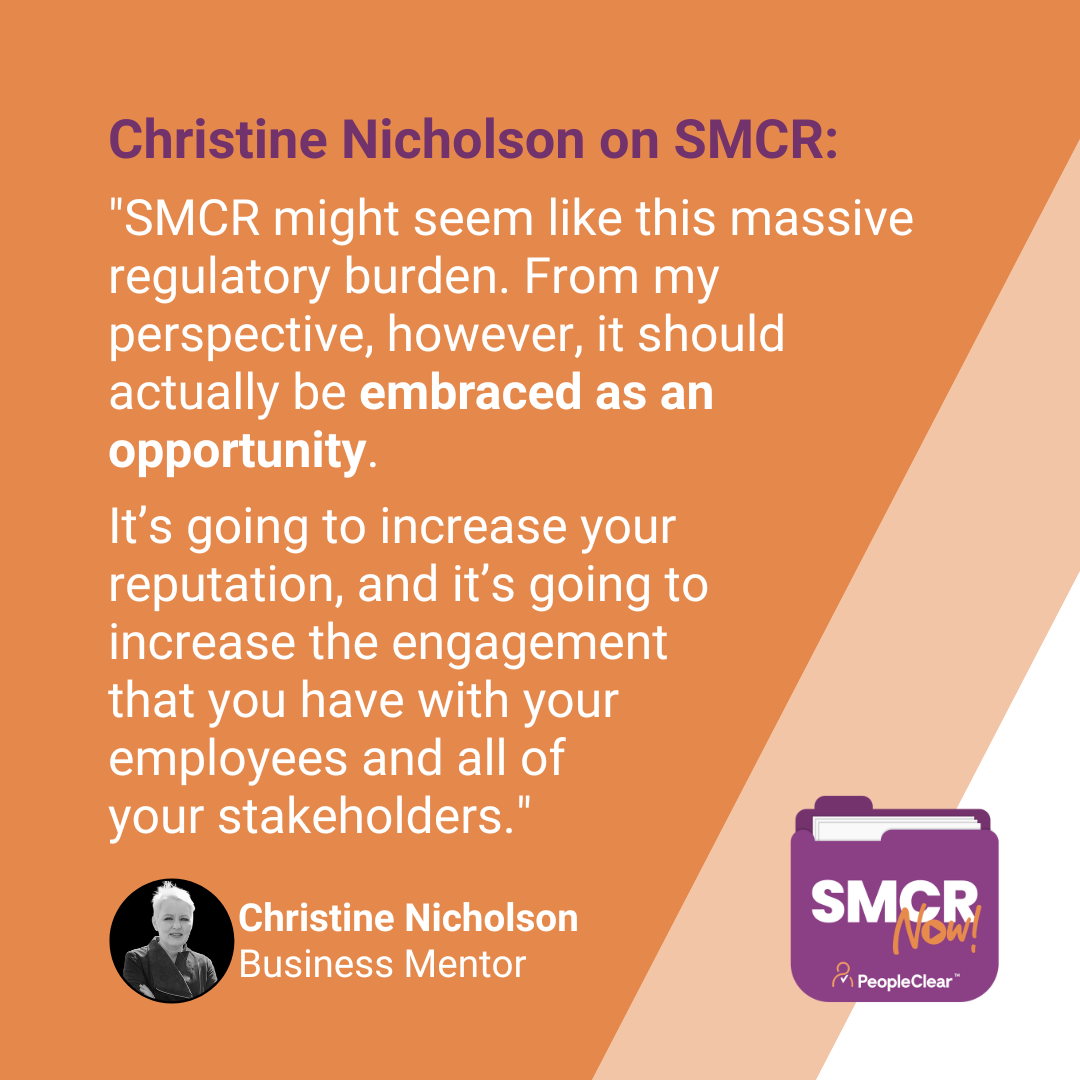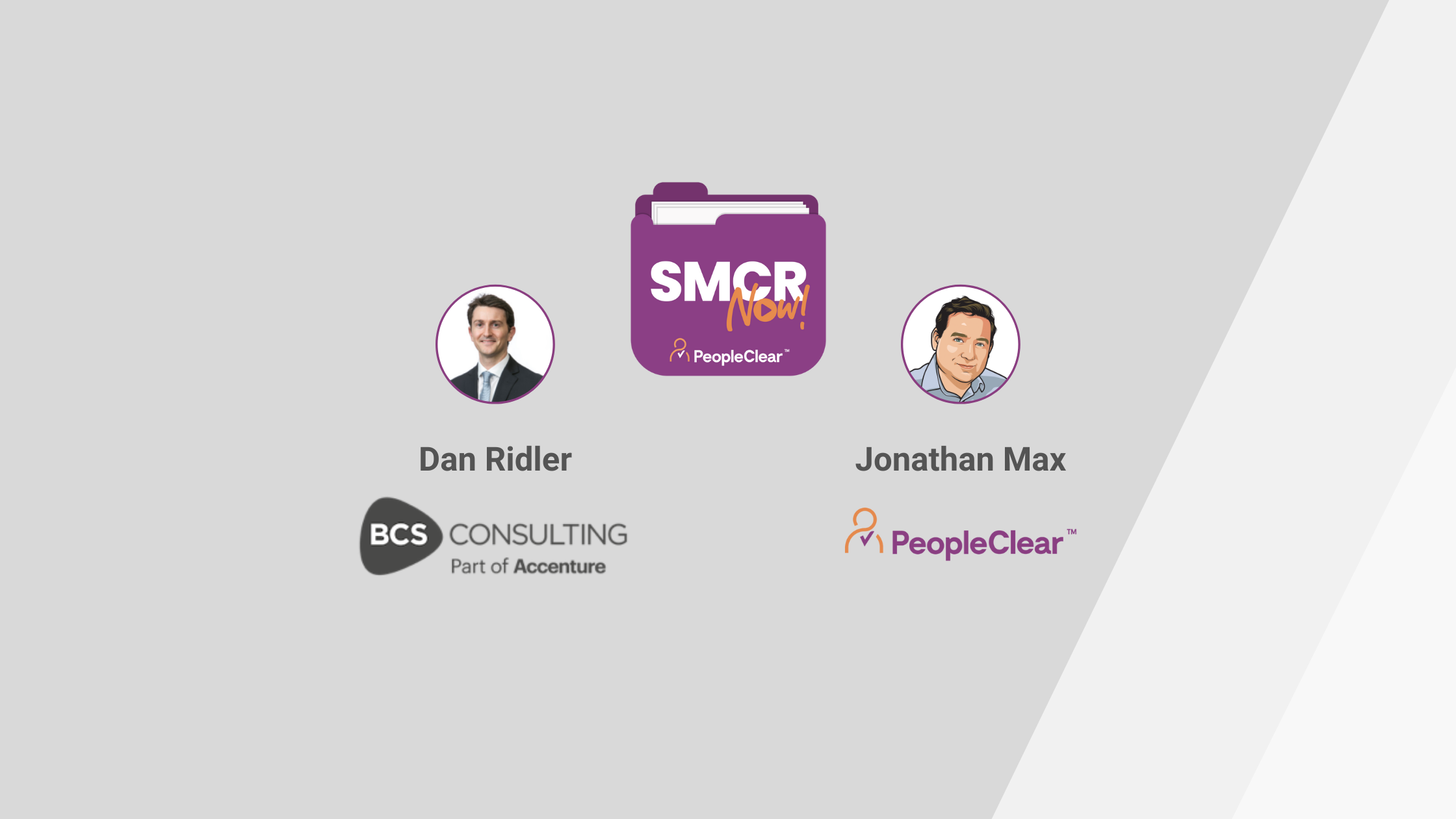SMCR Now! Episode 3: Christine Nicholson, Business mentor

Welcome to another episode of SMCR Now. This series aims to answer the most important questions surrounding The Senior Managers and Certification Regime (SMCR) by sharing the thinking and the experiences of some of the many players involved with SMCR. You can view the previous episode here.
In this edition of SMCR Now! Andrew Lebentz is joined by Christine Nicholson, who’s a business mentor with a specialism in succession and Exit Planning.. You can watch it here or read the transcript below.
CHRISTINE, YOU MUST HAVE SEEN MORE THAN YOUR FAIR SHARE OF WORKING PRACTICES AND WORKING ETHICS AT PLAY DURING YOUR CAREER?
Absolutely. I mean, I’m old enough to have a career that has spanned the change of centuries, and lucky enough to have lived and worked in many different countries. And, during my career, I have witnessed some significant changes in the different cultural approaches to ethical standards, and different approaches to best practice.
WHY IS RESPONSIBILITY AND WORK CULTURE SO IMPORTANT?
Well, even outside of SMCR, the best businesses that work the most effectively, the most efficiently, and the most productively, have this golden thread of transparency running through them. I think that is especially important in regulated financial institutions.

In the past, everything was on a handshake and on trust. Well, that was when the world was a bit smaller, and you always knew the people that you were dealing with. Now, with globalisation, transparency is much more a requirement of operating an effective and productive company that people want to work in and do business with. And, when you elevate that up to the financial services sector you see that, when things go wrong, it can end up being the front page of 100 newspapers.
So, the transparency starts at the absolute base level with everybody in your organisation, but then also elevates itself up so that it’s completely transparent to all of your stakeholders, not just the ones that are inside your business means that you’re going to be building more trust, you’re going to find it easier to recruit people, which we know there’s massive manpower and skill shortage at the moment. What’s more, you’re also going to be able to trade beyond those international boundaries.
DOES REGULATION AND TRANSPARENCY LEAD TO MORE RED TAPE?
To be honest, I think that’s a bit of a mistake. Red tape, in its kind of darkest interpretation, is really about putting restrictions on business. It’s actually stopping you from doing things. However, if you’re running an effective, productive, and ethical organisation, all this perceived ‘red tape’ shouldn’t be seen as a negative thing. These regulations are there to keep the unethical people out, to keep out the people who are going to destroy the reputation of your business.
I started out in banking 40 years ago. At that time, it was kind of the Wild West. Now, if you think about the advances that we’ve had, certainly here in the UK, the standards are much higher. These regulations are not there to cause inconvenience to staff, they are there to maintain the trust of our clients.
These days, London is seen as a safe place for investors, thanks to the regulations which encourage this level of transparency. The difference between red tape and regulations is that, if you comply with the regulations, it makes life easier for you as a business, and it helps to improve your efficiency and effectiveness. The great thing about working in a regulated environment is that there is a clear rulebook. So you already know what the right thing to do is, because someone’s already told you, and you don’t have to rely on your gut feeling.
When it comes to regulations, if you’re doing the right thing, and you’ve got the right people, they won’t necessarily be onerous. Where they become onerous is when companies don’t use the available technology to create efficiency. That’s why we’re here talking about SMCR. Of course it’s a huge regulatory burden for those people who are still using 18th and 19th century methods to manage it. But, we’re not in the 1900s anymore! We’re in the 2000s. There’s technology here that will make regulatory compliance much easier.
HOW WILL THE SMCR PROGRAMME BENEFIT BUSINESSES GOING FORWARD?
Certainly it will, in terms of transparency. When I was in the Navy, I learned the rule of the three C’s, consistency, clarity, and certainty. These are the things that both your staff and clients will be looking for. As an employer, I think you can make it really easy for your staff to do their job, or you can make it really hard – the choice is up to you.
When the SMCR regulations came in, there was probably a lot of sucking of teeth, people saying “how are we ever going to get through this?” There’s probably a whole raft of people who are doing manual administration, but that is just not achieving their potential at all, they will be bored. Thanks to technology, instead of doing mine stultifying data entry that means nothing to them, employees can actually focus on managing the output of the data rather than managing the input of the data. Now, that’s a very different job, and a completely different level of engagement.
SMCR might seem like this massive regulatory burden. From my perspective, however, it should actually be embraced as an opportunity. It’s going to increase your reputation, and it’s going to increase the engagement that you have with your employees and all of your stakeholders.

GET IN TOUCH TO SEE THE PEOPLECLEAR SOLUTION, AND TO ARRANGE A DEMONSTRATION
Click here to book a demo. Alternatively connect with us on LinkedIn or request a call back we can happily talk through how our solution may be able to help.
Join us next time on SMCR Now! for more insights, more experiences, and more understanding of SMCR and how it applies across the regulated financial industry.

Welcome to another episode of SMCR Now. This series aims to answer the most important questions surrounding The Senior Managers…